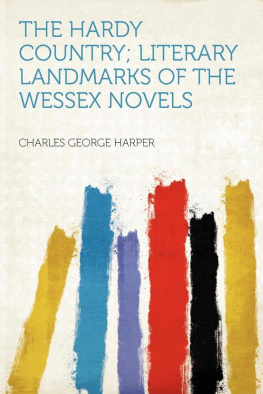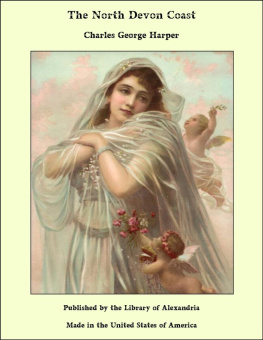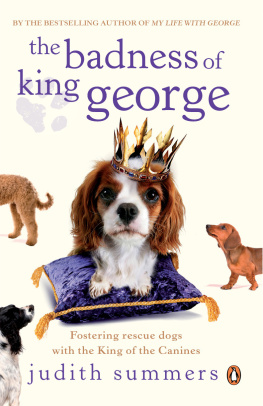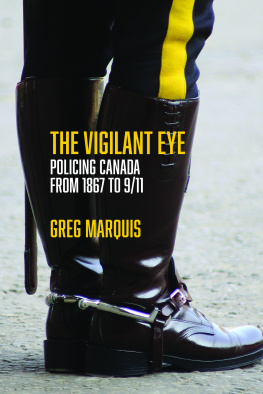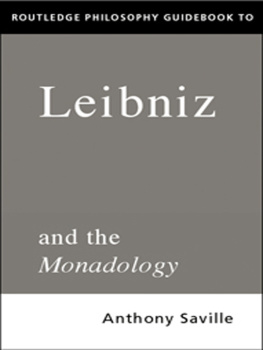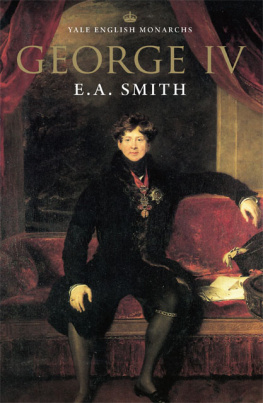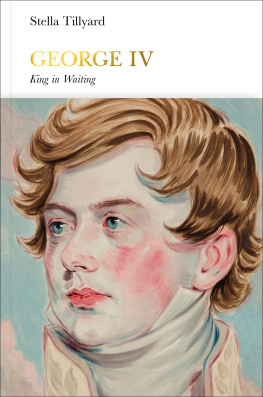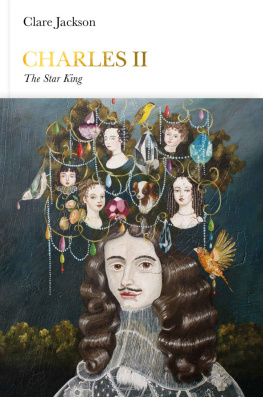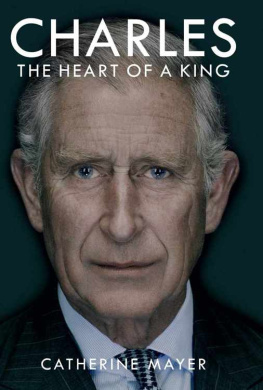The Project Gutenberg eBook, A Character of King Charles the Second, by George Savile, Marquis of Halifax
This eBook is for the use of anyone anywhere at no cost and with
almost no restrictions whatsoever. You may copy it, give it away or
re-use it under the terms of the Project Gutenberg License included
with this eBook or online at www.gutenberg.org
Title: A Character of King Charles the Second
Author: George Savile, Marquis of Halifax
Release Date: March 29, 2011 [eBook #35708]
Language: English
Character set encoding: ISO-8859-1
***START OF THE PROJECT GUTENBERG EBOOK A CHARACTER OF KING CHARLES THE SECOND***
E-text prepared by Bryan Ness
and the Online Distributed Proofreading Team
(http://www.pgdp.net)
from scanned images of public domain material
generously made available by the
Google Books Library Project
(http://books.google.com/)
| Note: | Images of the original pages are available through the the Google Books Library Project. See http://books.google.com/books?vid=fYIpW8Jl5bEC&id |
A
CHARACTER
OF
KING CHARLES
THE SECOND:
AND
Political, Moral and Miscellaneous
Thoughts and Reflections .
By GEORGE SAVILE,
Marquis of Halifax ,
LONDON:
Printed for J. and R. Tonson and S. Draper
in the Strand. M DCC L.
ADVERTISEMENT.
The following Character of King Charles the Second, with the Political, Moral and Miscellaneous Thoughts and Reflections were written by George Savile Marquis of Halifax , and were taken from his original Manuscripts, in the Possession of his Grand-daughter Dorothy Countess of Burlington .
CONTENTS.
| Page |
| Character of King Charles II. |
| Political Thoughts and Reflections. |
| Of Fundamentals, |
| Of Princes, |
| Princes, (their Rewards of Servants) |
| Princes, (their Secrets) |
| Love of the Subjects to a Prince, |
| Suffering for Princes, | ibid. |
| Of Ministers, |
| Wicked Ministers, |
| Instruments of State Ministers, |
| Of the People, |
| Of Government, |
| Clergy, |
| Religion, |
| Of Prerogative, Power and Liberty, |
| Of Laws, |
| Of Parliaments, |
| Of Parties, |
| Of Courts, |
| Of Punishment, |
| Moral Thoughts and Reflections. |
| Of the World, |
| Of Ambition, |
| Of Cunning and Knavery, |
| Of Folly and Fools, |
| Of Hope, |
| Of Anger, |
| Of Apologies, |
| Of Malice and Envy, |
| Of Vanity, |
| Of Money, |
| False Learning, |
| Of Company, |
| Of Friendship, |
| Miscellaneous Thoughts and Reflections. |
| Of Advice and Correction, |
| Of Alterations, |
| Bashfulness, |
| Boldness, | ibid. |
| Borrowers of Opinions, |
| Candour, | ibid. |
| Of Caution and Suspicion, |
| Cheats, |
| Complaint, | ibid. |
| Content, |
| Converts, | ibid. |
| Desires, |
| Difficulty, |
| Dissembling, |
| Dreams, | ibid. |
| Drunkenness, | ibid. |
| Experience, |
| Extremes, | ibid. |
| Faculties of the Mind, |
| Families, |
| Fear, |
| Flattery, |
| Forgetfulness, |
| Good-manners, | ibid. |
| Good-nature, |
| Good-will, | ibid. |
| Heat, | ibid. |
| Honesty, | ibid. |
| Hypocrisy, |
| Injuries, | ibid. |
| Integrity, |
| Justice, | ibid. |
| To Love, and to be in Love different, |
| Lucre, | ibid. |
| Lying, | ibid. |
| Names, |
| Partiality, | ibid. |
| Patience, |
| Positiveness, |
| Prosperity, | ibid. |
| Quiet, | ibid. |
| Reason and Passion, |
| Reputation, |
| Self-Love, | ibid. |
| Shame, | ibid. |
| Singularity, | ibid. |
| Slander, |
| Speakers in Publick, | ibid. |
| Time, the Loss of it, |
| Truth, | ibid. |
| Wisdom, | ibid. |
| Youth, |
A
CHARACTER
OF
KING CHARLES II.
I. Of his Religion .
A Character differeth from a Picture only in this, every Part of it must be like, but it is not necessary that every Feature should be comprehended in it as in a Picture, only some of the most remarkable.
This Prince at his first entrance into the World had Adversity for his Introducer, which is generally thought to be no ill one, but in his case it proved so, and laid the foundation of most of those Misfortunes or Errors, that were the causes of the great Objections made to him.
The first Effect it had was in relation to his Religion.
The ill-bred familiarity of the Scotch Divines had given him a distaste of that part of the Protestant Religion. He was left then to the little Remnant of the Church of England in the Fauxbourg St. Germain; which made such a kind of figure, as might easily be turnd in such a manner as to make him lose his veneration for it. In a refined Country where Religion appeared in Pomp and Splendor, the outward appearance of such unfashionable Men was made an Argument against their Religion; and a young Prince not averse to rallery, was the more susceptible of a contempt for it.
The Company he kept, the Men in his Pleasures, and the Arguments of State that he should not appear too much a Protestant, whilst he expected Assistance from a Popish Prince; all these, together with a habit encouraged by an Application to his Pleasures, did so loosen and untie him from his first Impressions, that I take it for granted, after the first Year or two, he was no more a Protestant. If you ask me what he was, my answer must be, that he was of the Religion of a young Prince in his warm Blood, whose Enquiries were more applied to find Arguments against believing, than to lay any settled Foundations for acknowledging Providence, Mysteries, &c. A General Creed, and no very long one, may be presumed to be the utmost Religion of one, whose Age and Inclination could not well spare any Thoughts that did not tend to his Pleasures.
In this kind of Indifference or Unthinkingness, which is too natural in the beginnings of Life to be heavily censured, I will suppose he might pass some considerable part of his Youth. I must presume too that no Occasions were lost, during that Time, to insinuate every thing to bend him towards Popery. Great Art without intermission against Youth and Easiness, which are seldom upon their guard, must have its Effect. A Man is to be admired if he resisteth, and therefore cannot reasonably be blamed if he yieldeth to them.
Next page


